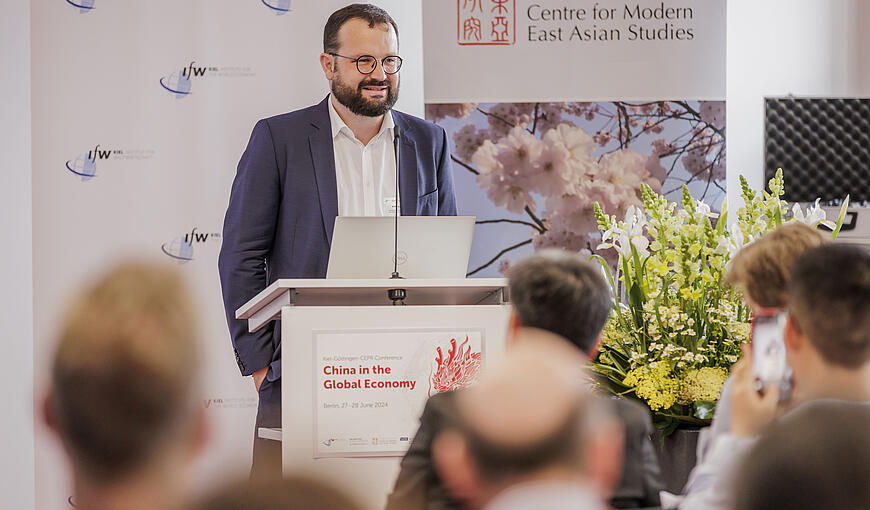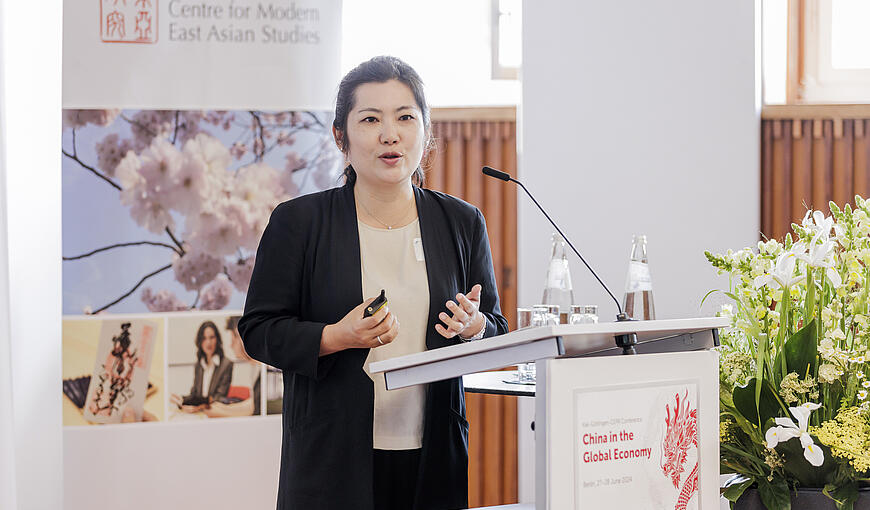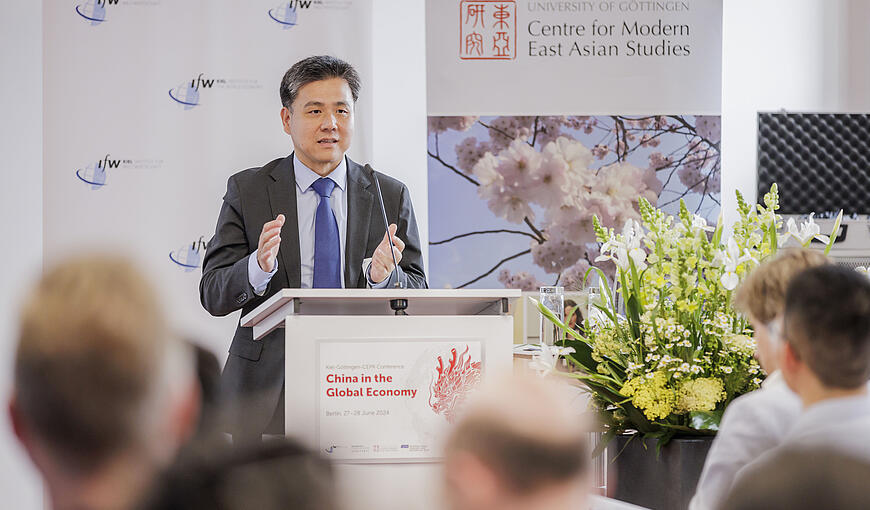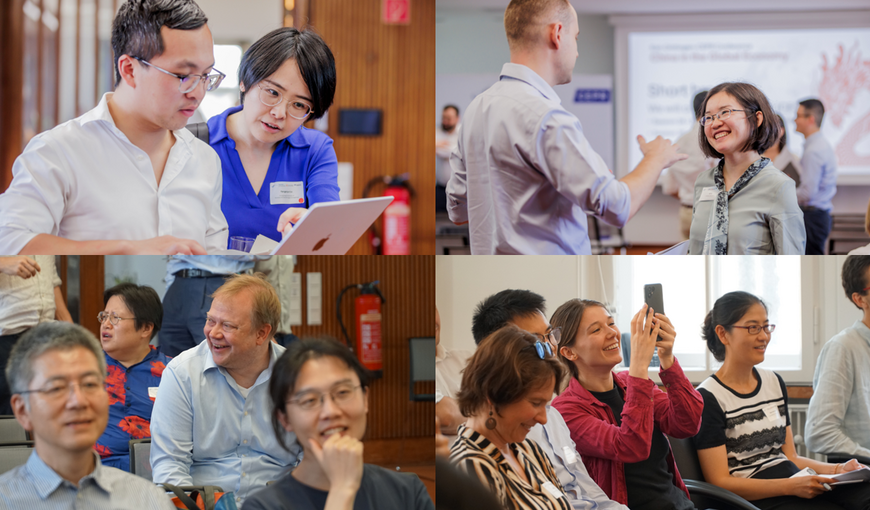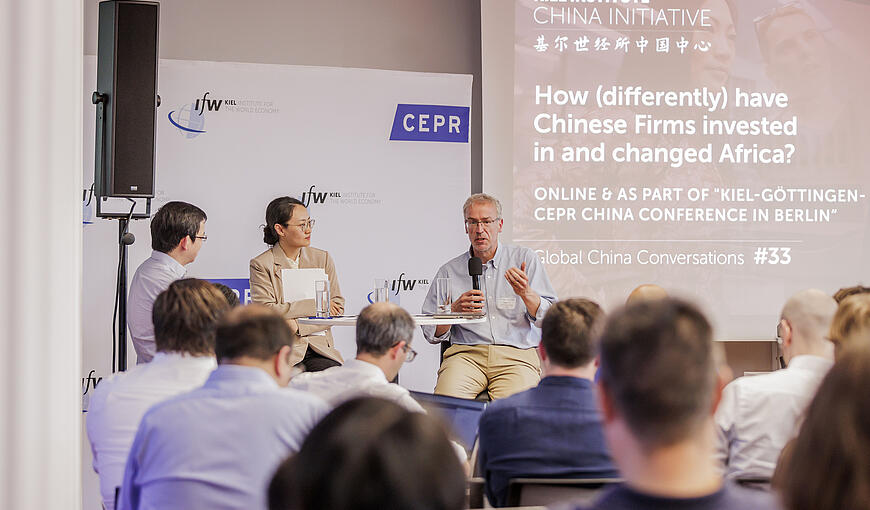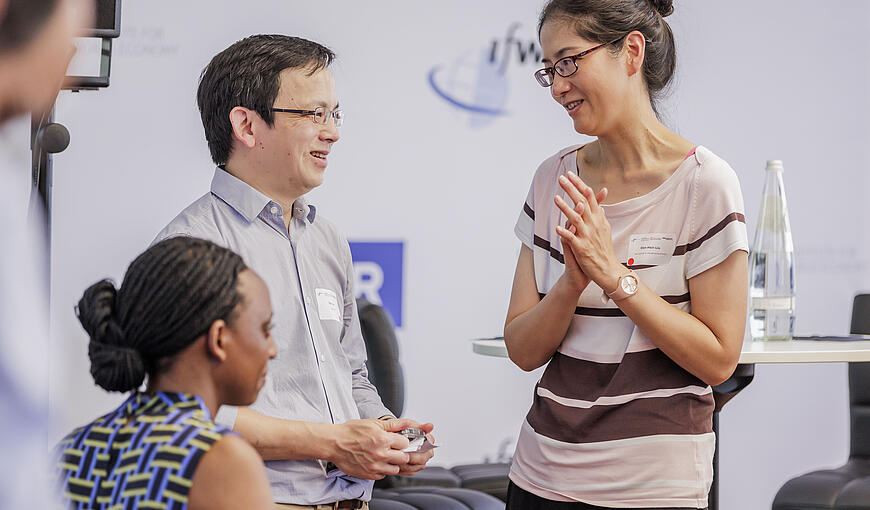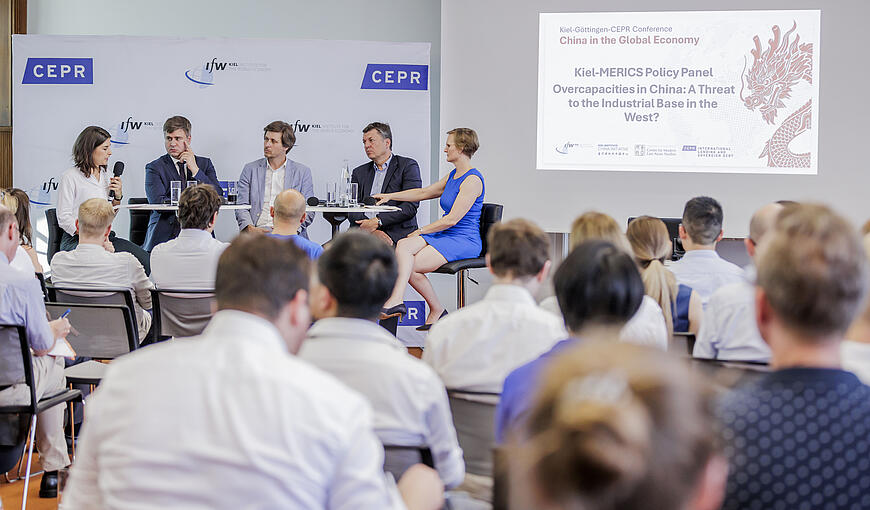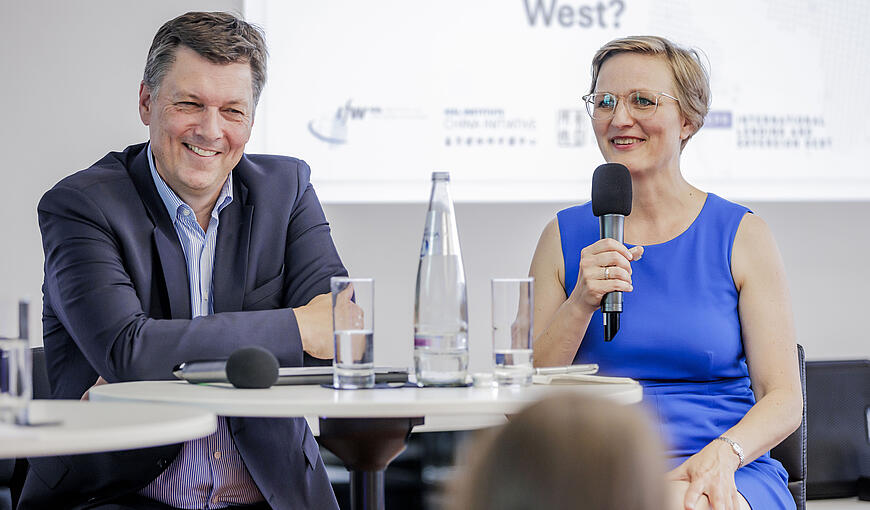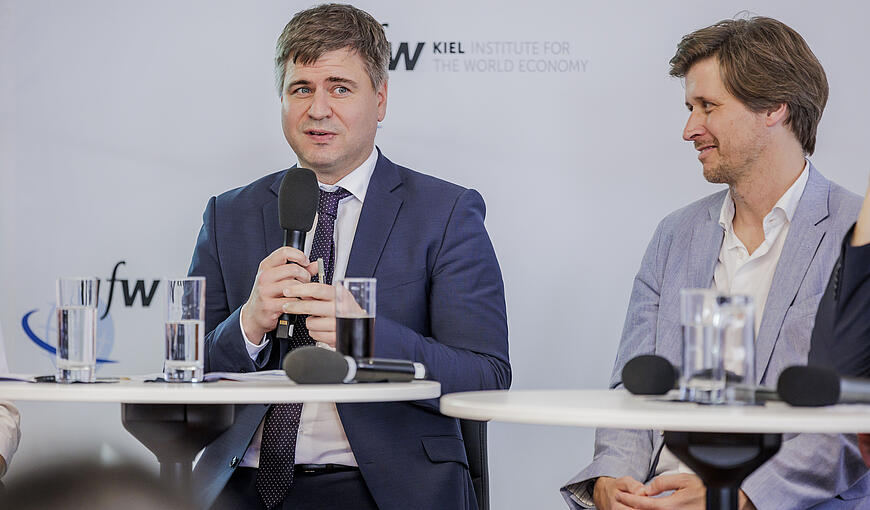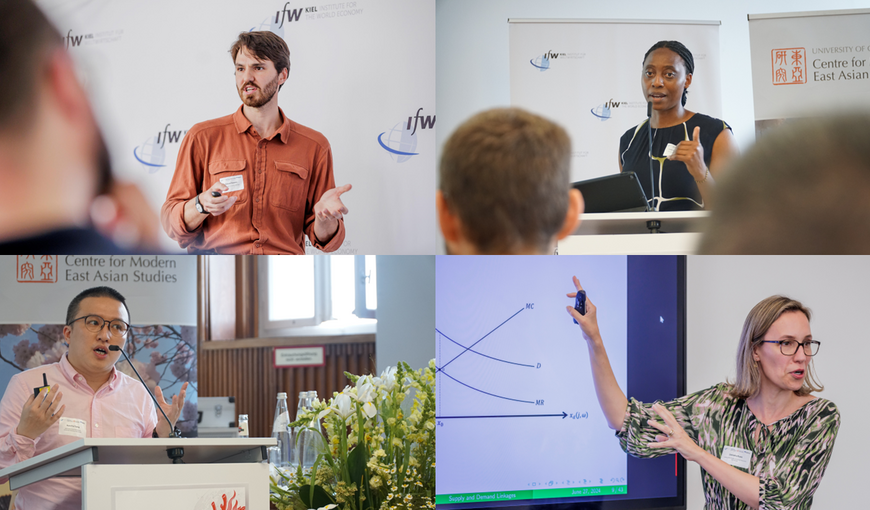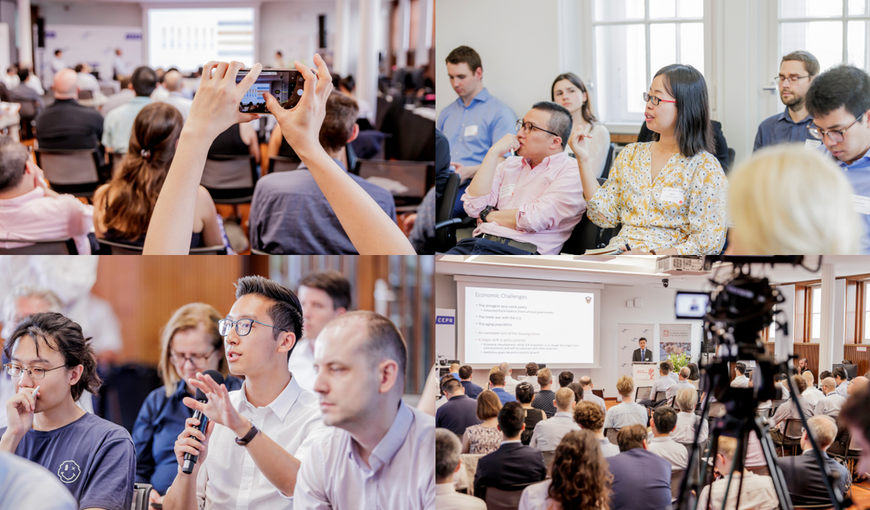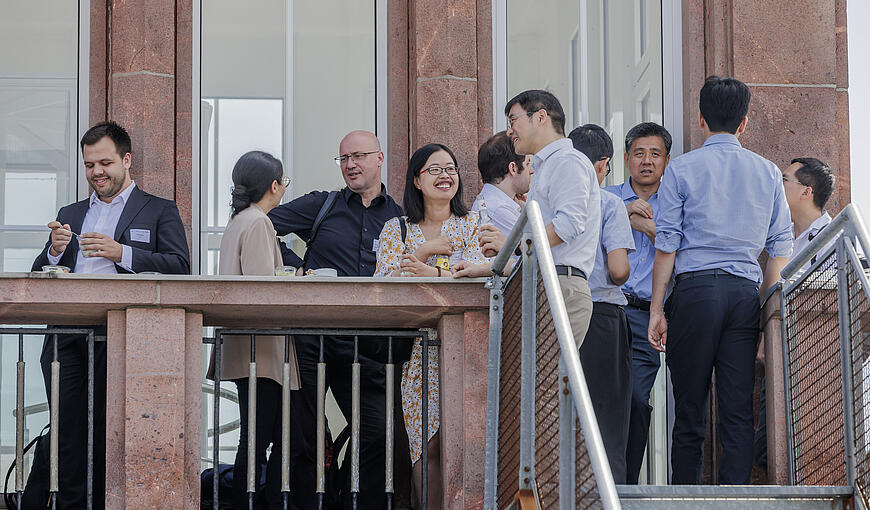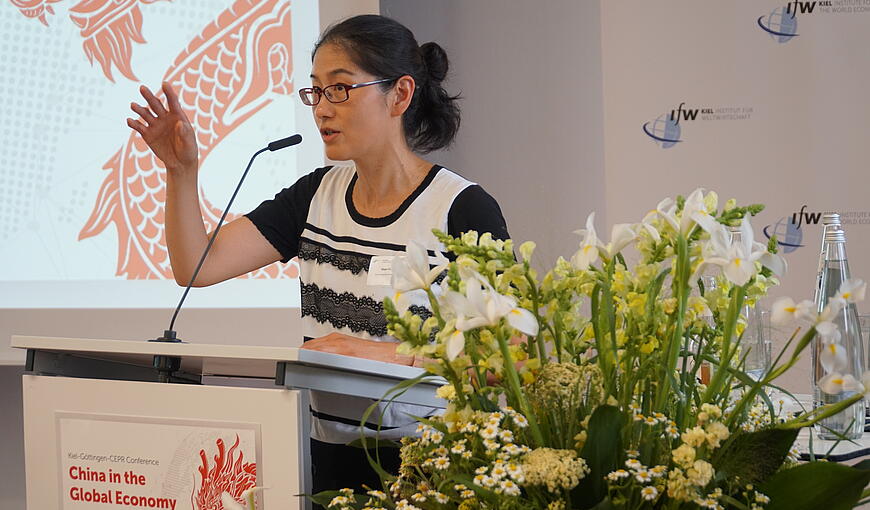China in the Global Economy - Kiel-Göttingen-CEPR Conference
Conference Impressions
-
Opening by Andreas Fuchs (Kiel Institute and University of Göttingen)
-
Keynote by Nancy Qian (Northwestern University)
-
Keynote by Wei Xiong (Princeton University)
-
-
Global China Conversation #33 with Hong Zhao (UNIDO) and Holger Görg (Kiel Institute)
-
-
Kiel-MERICS Policy Panel
-
Wolfgang Niedermark (BDI) and Franziska Brantner (BMWK)
-
Mikko Huotari (MERICS, left) and Moritz Schularick (Kiel Institute)
-
Samuel Siewers, Linda Maokomatanda, Kam Pui Tsang and Lisandra Flach (from top left to bottom right)
-
-
-
Christoph Trebesch, Nancy Qian, Moritz Schularick, Wei Xiong, Wan-Hsin Liu, Heiwai Tang and Andreas Fuchs (l.t.r.)
-
Farewell and thank you by Wan-Hsin Liu (Kiel Institute)
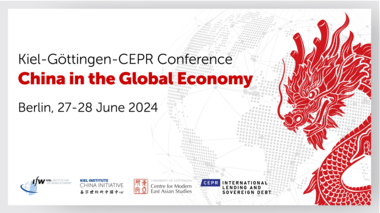
Today, China stands as the world’s foremost exporter and a significant global investor. The Belt and Road Initiative, spanning over 150 countries, underscores China’s expansive reach through a network of infrastructure development and investment projects. Notably, China’s economic landscape is marked by the substantial involvement of the state in economic activities, development planning, and economic diplomacy—a departure from the norms observed in Europe and the United States. This intertwining of economic and geopolitical interests positions China as a key player in the realm of geoeconomics, leveraging its economic prowess to advance strategic objectives on the global stage. While there exists a mutual interest between China and the “West” in upholding the multilateral, rules-based global economic order, concerns grow among businesses and policymakers regarding unfair competition and restricted access to the Chinese market. Despite China’s escalating economic prominence, research intensity on its role in the global economy trails behind.
The conference served as a nexus for leading scholars delving into China’s multifaceted role in the global economy.
We were honored to welcome two distinguished keynote speakers: Nancy Qian (Northwestern University), who addressed "The Geo-economics of 21st Century China", and Wei Xiong (Princeton University), who discussed "Challenges to China’s Hybrid Economy".
A highlight of the conference was the Kiel-MERICS Policy Panel on “Overcapacities in China: A Threat to the Industrial Base in the West?” with Franziska Brantner (BMWK), Wolfgang Niedermark (BDI), Mikko Huotari (MERICS), and Moritz Schularick (Kiel Institute). We thank the Mercator Institute for China Studies (MERICS) for their kind support.
The conference also featured a special live edition of the Global China Conversations, our monthly webinar series on China in the global economy. Panelists Holger Görg (Kiel Institute), R.Yofi Grant (Ghana Investment Promotion Centre), and Hong Zhao (UNIDO) discussed “How (Differently) Have Chinese Firms Invested in and Changed Africa?” We thank China.Table, KOF Swiss Economic Institute, and TH Wildau for supporting this panel.
Also part of the conference were two entertaining dinner speeches by Brad Setser (Council on Foreign Relations, CFR) and Heiwai Tang (University of Hong Kong) in a very special atmosphere on the banks of the Spree River.
We are grateful for financial support by the Leibniz Association in the framework of the project “China in Africa: Exploring the Consequences for Economic and Social Development.”
